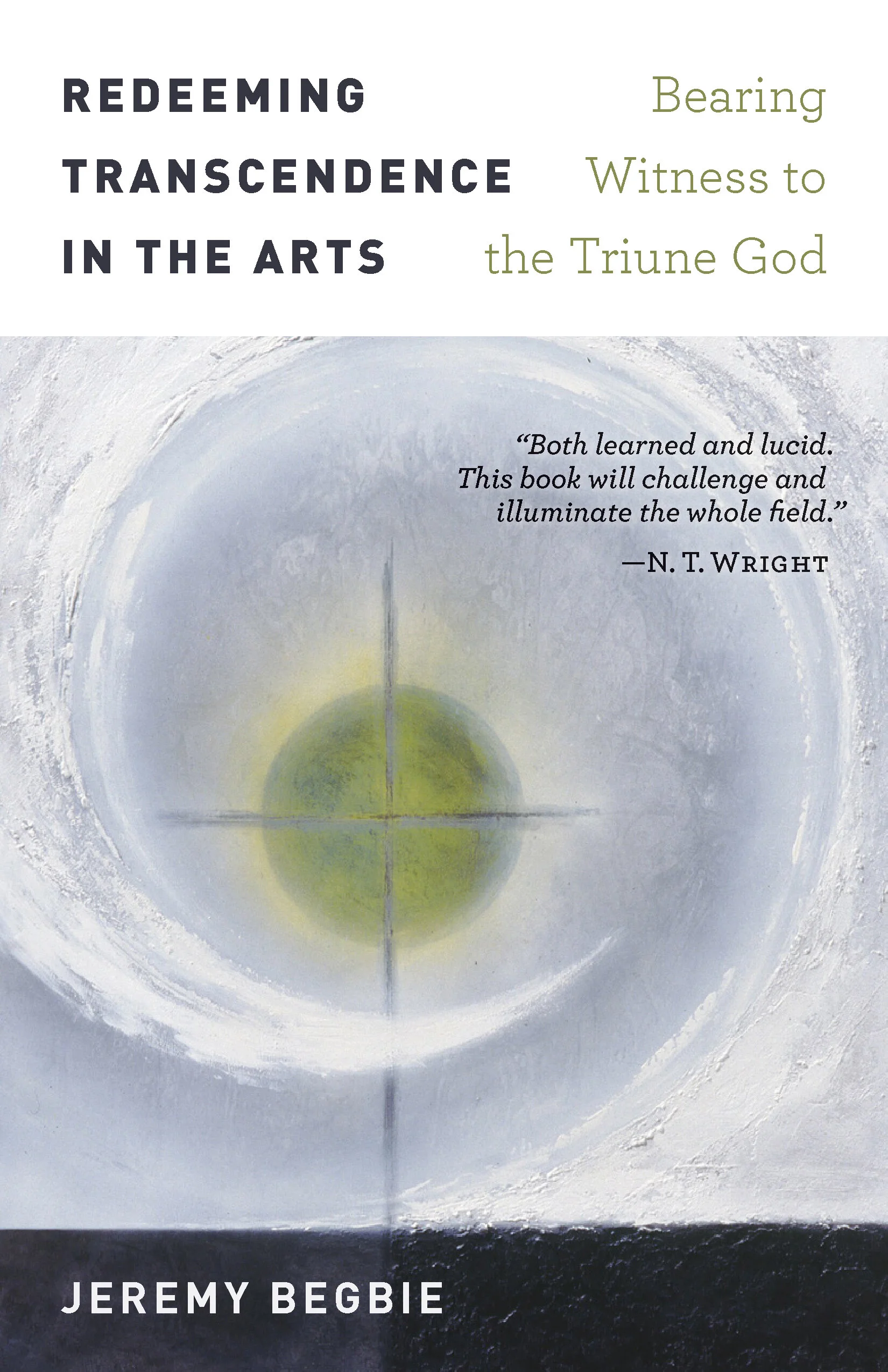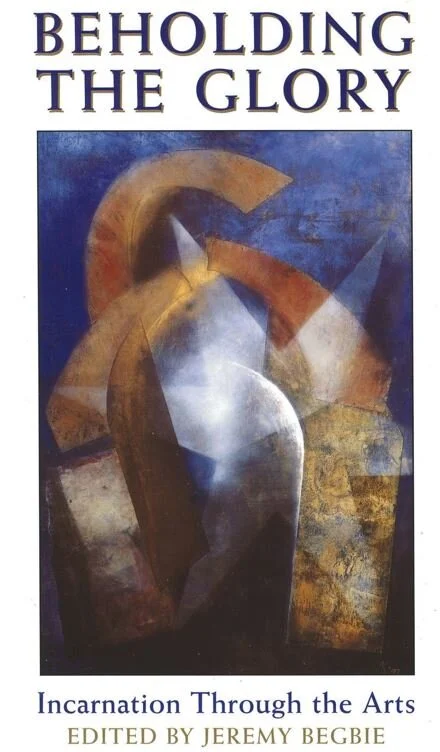
Abundantly More
The Theological Promise of the Arts in a Reductionist World
A study of the way the arts can help us resist some of the most de-humanizing forces in our culture, and what this means for the Church’s witness and culture
Available from Baker Academic
-
![]()
A Peculiar Orthodoxy: Reflections on Theology and The Arts
"Orthodoxy, yes, but not at all peculiar--unless it is peculiar for a person so steeped in orthodox trinitarian theology to be so richly acquainted with the arts, or peculiar for a person so richly acquainted with the arts to be so steeped in orthodox trinitarian theology. Only a person as learned and immersed as Begbie in both of these areas of human endeavor could spy the wide range of connections that he brings to light between theology and the arts, especially music, many of them connections I had never noticed, connections that I will want to think about for quite some time. Extraordinarily perceptive. And the range of reading brought into the discussion, with never-failing generosity of spirit, is amazing. This is state of the art!"
— Nicholas Wolterstorff, Professor Emeritus, Yale
-
![]()
Redeeming Transcendence in the Arts: Bearing Witness to the Triune God
“Jeremy Begbie has been a central and seminal figure in the recent revolution in theology and the arts. Begbie’s argument here, both learned and lucid, is that only when we allow for a more explicitly biblical and Trinitarian vision of God will the vague claims for transcendence in the arts begin to make sense. This book will challenge and illuminate the whole field.”
— N. T. Wright, University of St. Andrews
-
![]()
Music, Modernity, and God: Essays in Listening
"Although Begbie advances sophisticated and sometimes technical arguments, his lucid prose rewards those who heed the invitation to listen: the theologian, the musician, and the pastor alike."
— Transpositions
-
![]()
Resounding Truth: Christian Wisdom in the World of Music
Winner of Christianity Today award
"A profound, rigorous, and original work. Very few new books in theology or religious studies show this level of freshness and imagination. I hope it will be a landmark essay in this crucial field of reflection on theology and the creative arts."
— Rowan Williams, Former Archbishop of Canterbury
"Jeremy Begbie's thinking emerges out of a fusion of the best musical thinking about theology and the best theological thinking about music. The resulting text is charged with energy and insight--and not just for musicians and theologians. This vital work is poised to energize and strengthen the entire Christian community."
— John D. Witvliet, Calvin Institute of Christian Worship
-
![]()
Theology, Music and Time
“It would be difficult to overpraise this book. It breaks new ground, it is both insightful and highly informed, and it is written in a style devoid of the obscurity that often mars musicological reflection. . . [He has] has produced what is probably the most substantial book ever written on these themes.”
— Gordon Graham
“..his aim is ambitious...his book succeeds very well...Begbie's argument is complex and detailed, and for those who read music he provides closer musical analysis in sans serif typeface. Yet he writes clearly and concisely, making the argument accessible to the non-musician...In his best book to date, Begie gives a powerful and convincing account of music's contributions to theology.”
—Modern Theology
-
![]()
Voicing Creation's Praise: Towards a Theology of the Arts
“A timely disussion of the arts from the perspective of a well-read theologian…stimulating reading for the thinking Christian interested in the arts of our time. Begbie’s work points out the desperate need to regain the lost Christian voice in our postmodern arts.”
— Calvin Theological Journal
Edited Books
-
The Art of New Creation: Trajectories in Theology and the Arts
Edited by Jeremy Begbie, Daniel Train, and W. David O. Taylor
The biblical themes of creation and new creation are inextricably bound to each other. For the God who created the world is the same God who recreates humanity in Jesus Christ and the same God who promises a new heaven and a new earth.
How might the relationship between creation and new creation be informed by and reflected in the arts? This volume, based on the DITA10 conference at Duke Divinity School, brings together reflections from theologians, biblical scholars, and artists to offer insights on God's first work, God's future work, and the future of the field of theology and the arts.
-
![]()
Theology, Music, & Modernity: Struggles for Freedom
Edited by Jeremy Begbie, Daniel K L Chua, and Markus Rathey
How can the study of music contribute to the theological reading of modernity? This book seeks to demonstrate that the making and hearing of music, and the discourses surrounding music, can bear their own particular kind of witness to the theological dynamics that have characterized and shaped modernity, and especially with respect to modernity’s ambivalent relation to the God of the Christian faith. Music can provide a distinctive ‘theological performance’ of some of modernity’s most characteristic impulses and orientations.
The guiding theme of the book is freedom: one of the most critical issues of the modern era. And the overall theological perspective is provided by the theme of New Creation, a central and pervasive current in Christian Scripture. Concentrating on the period 1740–1850, the book is arranged into four parts (each section taking a particular musical work or corpus of music as its major reference point): (1) ‘Revolutionary Freedom’, (2) ‘From Church to Concert Hall’, (3) ‘Singing Justice’, (4) ‘Music and Language’.
-
![]()
Resonant Witness: Conversations Between Music and Theology
Edited by Jeremy S. Begbie and Steven R. Guthrie
Selected by the Academy of Parish Clergy as one of the Top Ten Books for Parish Ministry published in 2011
Resonant Witness gathers together a wide, harmonious chorus of voices from across the musical and theological spectrum to show that music and theology can each learn much from the other -- and that the majesty and power of both are profoundly amplified when they do.
With essays touching on J. S. Bach, Hildegard of Bingen, Martin Luther, Karl Barth, Olivier Messiaen, jazz improvisation, South African freedom songs, and more, this volume encourages musicians and theologians to pursue a more fruitful and sustained engagement with one another.
-
![]()
Sounding the Depths: Theology through the Arts
Edited by Jeremy Begbie
Emerging out of an international arts festival held in Cambridge in September 2000, Sounding the Depths brings a number of prominent artists (including sculptors, musicians and filmmakers) together with theologians, and reflects the intensive conversations and collaboration between them that characterised the event itself. While the essays engage with the considerable variety of ways in which the arts can enrich the theological enterprise, they are informed throughout by the conviction that theology not only can benefit from the arts, but that it actually needs them. Indeed, while some have claimed that to allow.; the arts a substantial place in theology means that theology becomes less rigorous, this book holds out for the opposite position: that the arts can generate greater rigour and precision, and thus help theology to be more appropriate to its own subject-matter, which is the disciplined pursuit of wisdom in particular practical contexts. This is a book that will be mandatory reading for all students of theology and the arts, and will also have strong appeal to anybody with an interest in how theology engages appropriately both with other disciplines and with contemporary culture in general.
-
Beholding the Glory: Incarnation Through the Arts
Edited by Jeremy Begbie
"A fine collection of probing and imaginative discussions on the relation between the Incarnation and the arts."
— Nicholas Wolterstorff, Yale Divinity School
Although the arts have played a significant role in both world history and Christian history, the contemporary church has often shunned them in favor of a more intellectual approach to theology. Beholding the Glory argues the necessity of renewing an engagement between theology and the arts. Specifically focusing on the incarnation, the book shows how the arts have an indispensable role to play in disclosing God's wisdom.
With an introduction by the editor, the book consists of eight essays written by practicing artists (a sculptor, poet, dancer, and musician), theologians, and professors--all well-versed in the relationship between imagination and theology.
Beholding the Glory would be an appropriate text for humanities courses as well as theological courses that stress a multifaceted approach to Christian doctrine.










